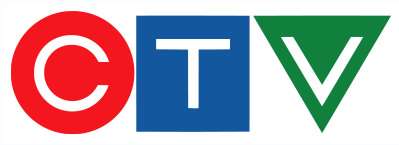CTV Television Network
| IMPORTANT: The content of this page is outdated. If you have checked or updated this page and found the content to be suitable, please remove this notice. |
|---|

CTV is Canada's oldest private broadcaster, and second-oldest network behind the publicly owned CBC. It began broadcasting in 1961, nine years after the CBC, and was established for many of the same reasons that ITV was in the United Kingdom: to end the public monopoly over Canadian broadcasting and provide choice for viewers. (Throughout the history of analog transmission, most Canadians have been able to watch the three (and later four) American networks as well. Simulcasts with Canadian stations are plastered over on cable.)
"CTV" doesn't legally stand for anything, but nearly everyone assumes it to mean "Canadian Television". Many Station Idents, by American branding firm Pittard Sullivan, have capitalized on this assumption.
The network took a long time to find its feet. Most shows were simulcasts (essentially, authorized network feeds) from the three American networks, which remains true to this day. However, "CanCon" content laws required some local broadcasting. During the early years, most of these were very cheaply produced game shows. Famously, the network's first well-known attempt at a sitcom was the notorious flop The Trouble With Tracy, regarded as one of the worst shows of all time. Judge for yourself.
After over a decade in the doldrums, the network's fortunes began to change in the mid-1970s. Lloyd Robertson, a star news anchorman for the CBC, was lured over to CTV with the promise of editorial control, and remained at the news desk for 35 years, until his retirement in 2011. Canada's most popular game show, Definition, began running in 1974. The network also has a knack for taking American programs and making Canadian versions of them. It actually beat 60 Minutes to the punch by two years with their own newsmagazine show called W-Five. A morning show called Canada AM began running in 1972. One of the iconic Canadian series, The Littlest Hobo, debuted in 1979.
But the CBC remained the dominant network well into The Nineties, at which point public funding began to dry up in the face of federal budget problems. At the same time, the CBC made the well-intentioned but boneheaded decision to stop simulcasting American programs (except for strip repeats of The Simpsons, for some reason). This allowed CTV (and rival network Global) to become incredibly dominant. One major homegrown success from this period was Due South, which was the first series produced for Canadian audiences to be simulcast by an American network — a rare and incredibly satisfying role reversal.
In the new millennium, CTV decided to start producing substantial Canadian programming, and has for the most part been very successful. It lured some of the producers of the old Degrassi shows away from the CBC for the Revival series Degrassi the Next Generation. But their greatest success was Corner Gas, reckoned by many as the best (which is to say, the only good) Canadian sitcom since King of Kensington in The Seventies. Both Degrassi and Corner Gas also became very popular in the States. The recent WGA strike resulted in American networks investing in several Canadian productions. One of these, Flashpoint, has aired on CBS as well as CTV (just like Due South, in fact) and became a moderate success for both networks. Another, The Bridge, started airing in summer 2010, but it quickly flamed out south of the border. At the same time, two new sitcoms, Hiccups and Dan for Mayor, produced by and starring many of the same people from Corner Gas, were unveiled with much fanfare.
Unfortunately, it seems as though recent CanCon efforts have not been quite so fruitful. Degrassi the Next Generation saw its ratings fall so far that the show had to make a Channel Hop to cable sibling MuchMusic (avoiding outright cancellation thanks to its immense popularity in the lucrative American market); The Bridge was cancelled after a season; Hiccups, Dan for Mayor, and the popular So You Think You Can Dance Canada were all cancelled in September 2011.
Famously, CTV wrested the Olympics away from the CBC starting with the 2010 Winter Olympics in Vancouver, paying top dollar and nearly being bankrupted when the recession hit; luckily, and unlike in the case of NBC's infamous experience with the 1980 Olympics, they were a huge success. CTV has also succeeded with gaining the rights to the World Cup until 2022. Also, the network has also shown an interest in poaching Hockey Night in Canada, the CBC's last remaining bastion in the ratings, but they've been unable as of yet. They did, however, succeed in taking the famous theme music, currently owned by sister cable channel TSN (which is not only a Canadian version of ESPN, but is itself partly owned by the network); perhaps someday they'll be reunited...
CTV Two was established for the 2011-12 television season. It's a re-branding of what was formerly called "A" (before that, A-Channel, and before that, NewNet, as well as, in Atlantic Canada, the regional cable channel ASN [Atlantic Satellite Network], which itself is now CTV Two Atlantic); it has a Prime Time schedule composed primarily of reruns and "surplus" American shows with lower ratings. The flagship network continues to be known as simply "CTV", with no "One" or any other modifier attached.
Not to be confused with the many TV stations around the world that share its initials, including Chukyo Television in Nagoya, Japan; China Television in Taiwan; Canterbury Television in New Zealand, and the television service owned by the Vatican.